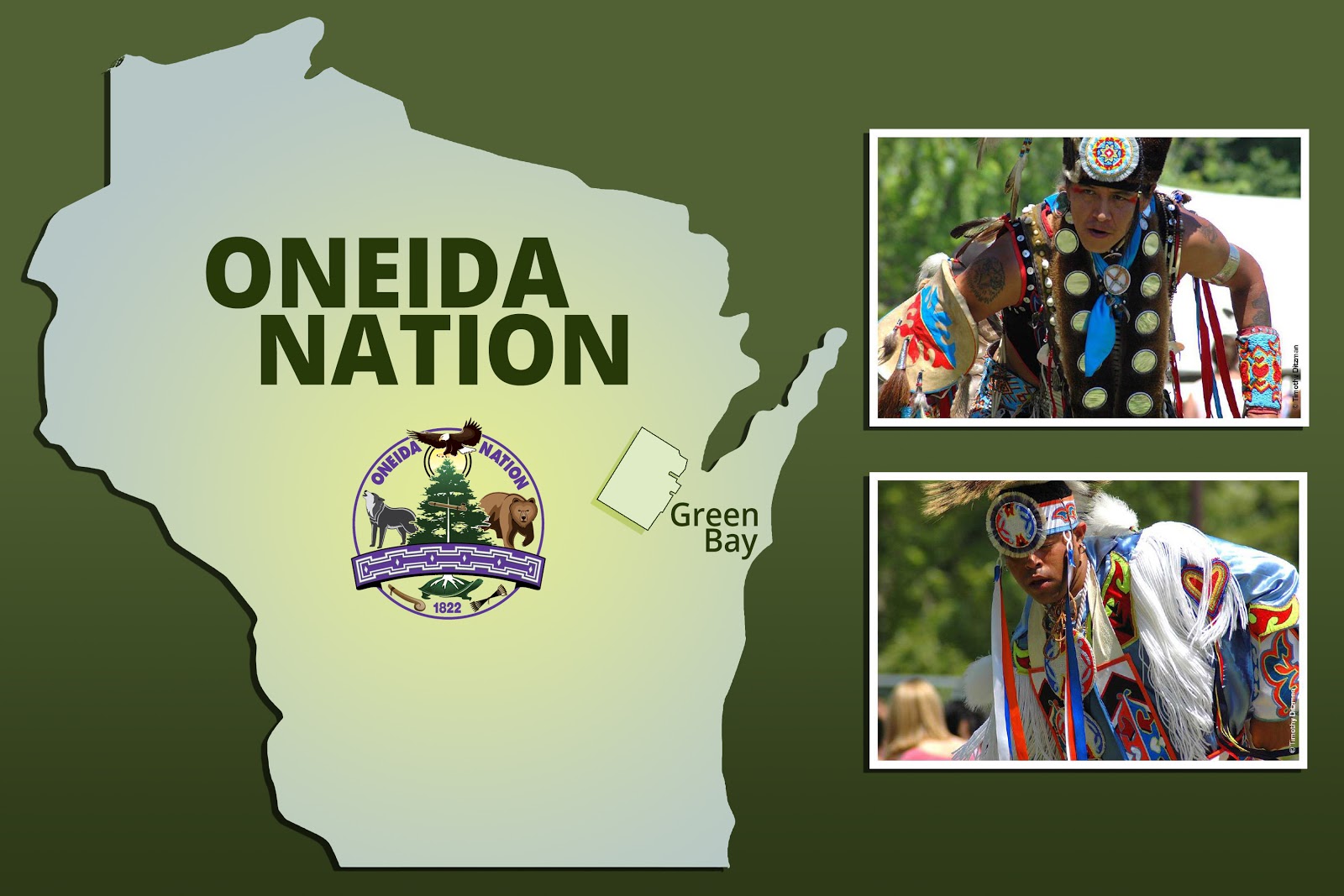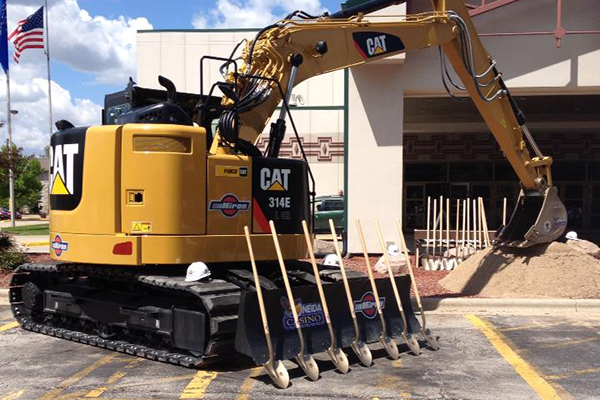
Sovereignty’s Harvest: How the Oneida Nation of Wisconsin Forged an Economic Powerhouse
From the verdant lands west of Green Bay, Wisconsin, where the Fox River winds its way to Lake Michigan, a remarkable story of economic resilience and self-determination unfolds. This is the story of the Oneida Nation of Wisconsin, a sovereign Indigenous nation that, against centuries of displacement, oppression, and systematic impoverishment, has meticulously built a thriving economy. Far from being a mere footnote in regional commerce, the Oneida Nation stands as a compelling testament to the power of tribal sovereignty, strategic diversification, and an unwavering commitment to its people and future generations.
At its heart, the Oneida economic model is rooted in a fundamental principle: self-sufficiency through self-governance. For much of the 20th century, like many Native American tribes, the Oneida faced immense challenges, including the devastating impacts of federal policies like allotment and termination, which eroded their land base and undermined their governmental structures. Poverty was widespread, and opportunities were scarce. However, with the advent of the self-determination era in the latter half of the century, the Oneida Nation began to reclaim its inherent right to govern its affairs, a right that included the power to engage in economic development on its own terms.

The turning point for many tribal economies, including the Oneida’s, arrived with the Indian Gaming Regulatory Act (IGRA) of 1988. This federal legislation affirmed the right of Native American tribes to operate gaming facilities on their sovereign lands. For the Oneida, this was not just an opportunity for entertainment; it was a pathway to economic liberation.
"Gaming wasn’t just about slot machines and blackjack tables for us," explains a tribal elder, reflecting on the early days of the Oneida Casino, which opened its doors in the late 1970s, even before IGRA, in a more modest form. "It was about generating the capital we desperately needed to rebuild our community, to fund essential services that the federal government wasn’t adequately providing, and to create jobs where there were none."
The Oneida Casino, located strategically near the Green Bay Austin Straubel International Airport and easily accessible from major highways, quickly became a cornerstone of the Nation’s economic engine. What started as a modest bingo hall evolved into a sprawling complex featuring thousands of slot machines, table games, poker rooms, a hotel, restaurants, and entertainment venues. It became a major regional attraction, drawing visitors and their spending from across Wisconsin and beyond.
The success of the Oneida Casino was transformative. It provided the initial, crucial capital that allowed the Nation to look beyond gaming and embark on an ambitious strategy of economic diversification – a move that has proven vital for long-term stability and growth. Recognizing the inherent volatility of the gaming industry, Oneida leaders wisely chose to reinvest a significant portion of their gaming revenues into a wide array of other enterprises.
Today, the Oneida Nation’s economic portfolio is impressively diverse, showcasing a sophisticated business acumen that belies its historical struggles. Their holdings include:
- Hospitality and Tourism: Beyond the casino hotel, the Nation owns and operates several other hotels and convention facilities, expanding its footprint in the regional tourism market.
- Retail and Convenience: Oneida Nation businesses include several "One Stop" convenience stores and gas stations strategically located throughout their service area, providing essential services and generating steady revenue streams.
- Construction and Infrastructure: The Nation has its own construction enterprises, capable of undertaking large-scale projects, not only for tribal needs but also for external clients. This creates jobs and keeps capital within the community.
- Food Services and Agriculture: While not on the same scale as gaming, the Nation has invested in food service operations and is making efforts to revitalize traditional agriculture, including a cannery and ventures that support local food sovereignty. This also ties into their cultural preservation efforts.
- Telecommunications: The Oneida Nation has made significant strides in providing its own broadband internet and telecommunications services, bridging the digital divide for its members and generating revenue.
- Health and Wellness: While not strictly "for profit," the Nation’s comprehensive healthcare system, funded largely by tribal revenues, is a massive economic driver, employing hundreds of healthcare professionals and providing critical services that improve the well-being and productivity of its citizens.

This diversification strategy is a testament to foresight and strategic planning. As an Oneida business leader once put it, "We learned early on that you can’t put all your eggs in one basket. Gaming gave us the start, but true sovereignty means building an economy that can withstand market fluctuations and serve our people for generations, regardless of what’s trending in entertainment."
The economic impact of the Oneida Nation extends far beyond its tribal borders. As one of the largest employers in northeastern Wisconsin, the Nation provides thousands of jobs, not only for its 17,000 enrolled members but also for a significant number of non-tribal individuals in the surrounding communities. This makes the Oneida Nation a vital economic partner for Brown County and the wider region. Its payroll, purchasing power, and capital investments ripple through the local economy, supporting countless other businesses and services.
Crucially, the revenue generated by these enterprises is not simply distributed as per capita payments, though some tribes do this. Instead, the Oneida Nation primarily reinvests its profits back into programs and services that benefit its entire community. This community-centric approach is a hallmark of Indigenous economic development. Funds are allocated to:
- Education: From early childhood development programs to K-12 schooling and scholarships for higher education, ensuring that Oneida youth have access to quality learning opportunities.
- Healthcare: Operating state-of-the-art clinics and health centers, addressing the historical disparities in healthcare access for Native Americans.
- Housing: Developing and maintaining affordable and quality housing options for tribal members.
- Elder Care: Providing comprehensive services and support for the Nation’s elders, honoring their wisdom and contributions.
- Cultural Preservation: Funding language revitalization programs, cultural centers, traditional arts initiatives, and historical preservation efforts, ensuring that Oneida identity remains strong for future generations.
- Infrastructure: Investing in roads, utilities, and public safety services on trust lands.
- Environmental Stewardship: Supporting initiatives for land restoration, sustainable resource management, and environmental protection, reflecting a deep spiritual connection to the land.
"Our economic success isn’t measured just by revenue or profit margins," states the Nation’s chairman. "It’s measured by the health of our children, the quality of life for our elders, the strength of our language, and the sustainability of our land. Every dollar we earn goes back into building a stronger, healthier, and more culturally vibrant Nation."
Despite its significant achievements, the Oneida Nation still faces challenges. The ongoing complexities of intergovernmental relations with federal, state, and local entities can present hurdles. Land issues, particularly the restoration of ancestral lands into trust status, remain a critical aspect of their sovereignty and economic development potential. Furthermore, like any large enterprise, they must navigate economic downturns, evolving market trends, and the ever-present need to innovate. The COVID-19 pandemic, for instance, posed significant challenges to their gaming and hospitality sectors, underscoring the importance of their diversified portfolio.
Looking to the future, the Oneida Nation of Wisconsin continues to pursue growth and innovation. There’s a renewed focus on sustainable practices, exploring green energy initiatives, and fostering a robust local food system. They are also actively engaged in inter-tribal collaborations, sharing best practices and advocating for policies that support tribal sovereignty and economic development across Indian Country.
The Oneida Nation’s journey is more than just an economic success story; it is a powerful narrative of resilience, self-determination, and the enduring spirit of a people. From the brink of economic despair, they have, through strategic vision and the assertion of their inherent sovereignty, transformed their community into a beacon of prosperity and a model for tribal nations worldwide. Their economy is not just about wealth; it is about well-being, cultural continuity, and the promise of a vibrant future for the generations to come, built on the solid foundation of their own making.


